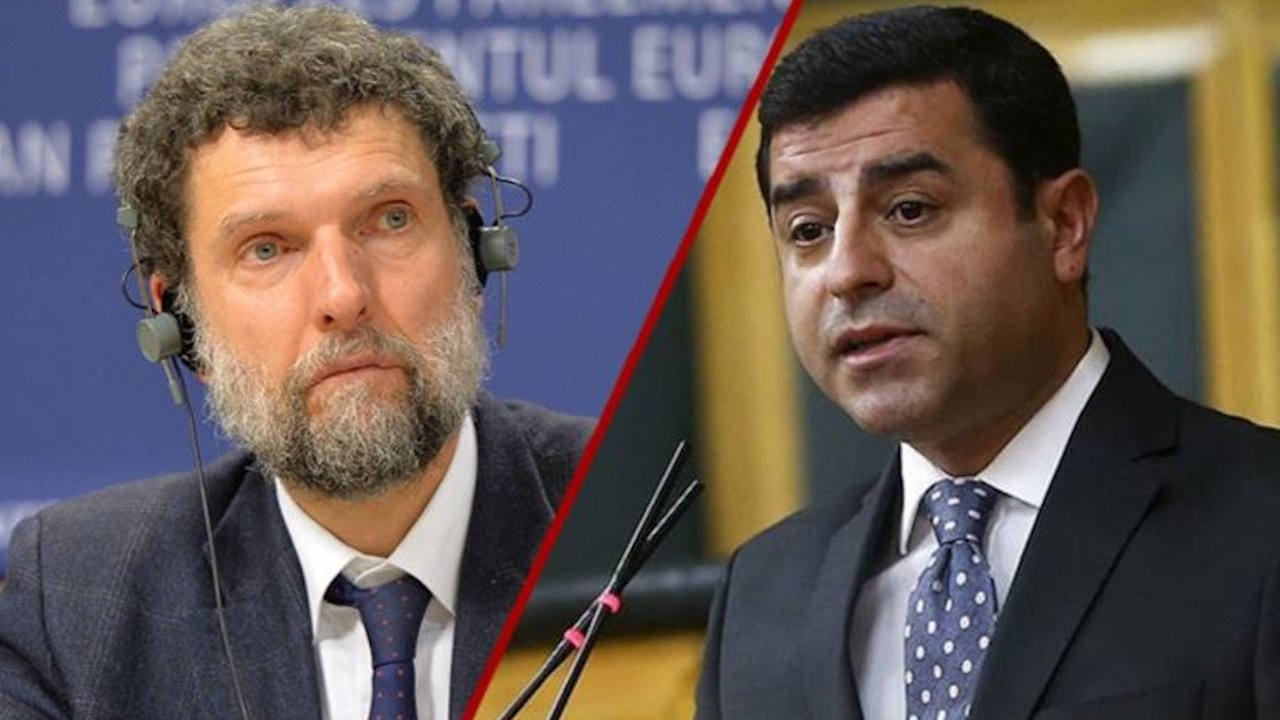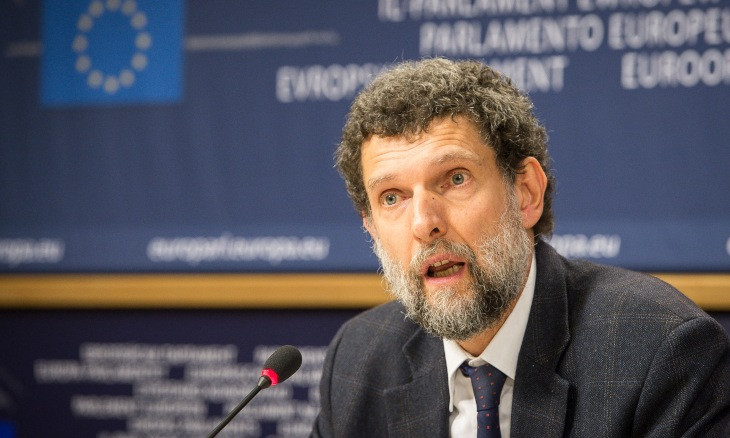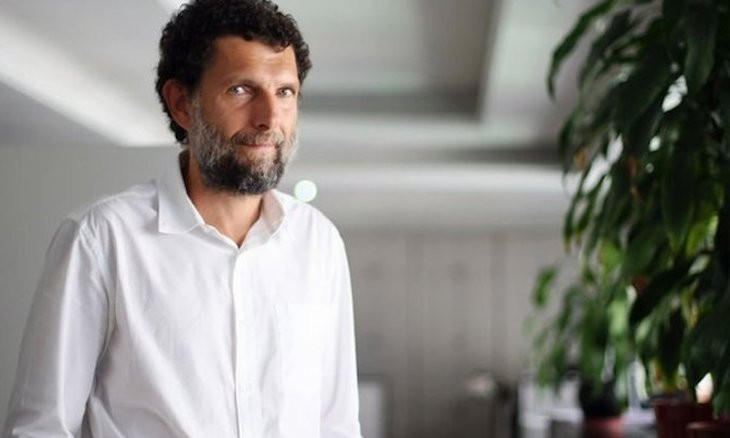Kavala and Demirtaş react to ongoing imprisonment against ECHR orders
Kurdish politician Selahattin Demirtaş and philanthropist Osman Kavala both remain jailed in Turkey despite European Court of Human Rights (ECHR) orders to release them. The two men reacted to their ongoing imprisonment against the court’s will.
Duvar English
Following the decision by the Council of Ministers of the Council of Europe, of which Turkey is a founding member, to initiate infringement proceedings against Turkey for the continued detention of businessperson and philanthropist Osman Kavala, Kavala and jailed former People’s Democratic Party (HDP) co-chair Selahattin Demirtaş released statements on their ongoing imprisonment.
The ECHR has ruled that both men’s detention is a violation of their rights and that they should be immediately released. Turkey’s constitution stipulates that ECHR decisions have the power of law in Turkey. Despite this, both men remain behind bars.
In an interview held with Independent Turkish from prison, Kavala, who is being held in pre-trial detention on charges of “espionage” and “attempting to overthrow the constitutional order” in connection with the July 2016 coup attempt, said that the decision to ignore the ECHR order will be to Turkey’s economic detriment.
“After the ECHR's evaluation, the Council of Europe will begin to impose sanctions such as the restriction of the country's voting rights [on the council] and the suspension of membership as a last resort. These are sanctions that will indirectly affect the economy, as they confirm damage to the rule of law in the country,” he said.
Kavala associates his own detention with President Recep Tayyip Erdoğan’s blaming of domestic Turkish issues on the West. When Kavala was first detained in 2017, it was on charges that he allegedly worked with George Soros and international interlocutors to instigate the Gezi Park protests of 2013. Later, he was accused along with American academic Henry Barkey of orchestrating the 2016 coup attempt. Now, he says, asErdoğan blames foreign powers for the domestic economic crisis in Turkey, he is kept behind bars to make him look guilty and complicit. It is, he said, all a part of the same trend.
Civil society, Kavala said, has failed to prevent the depiction of dissidents like himself and Demirtaş as guilty.
If there was a positive outcome of his case, he says, he hopes that it revealed the extent to which rule of law and democracy have been degraded in Turkey.
“I believe that this and similar cases will contribute to a better understanding of the vital importance of an independent judiciary that works according to universal norms,” he said.
If the Turkish government fails to release Kavala before the Jan. 19, 2022 deadline set by the Council for Turkey to submit its defense as to why Kavala remains imprisoned, it is likely that sanctions could be levied on the country.
The Council of Europe has also ruled that Demirtaş needs to be released, but the deadline for his release has not been set. Demirtaş this week responded to the Turkish government’s decision not to release Kavala. This week, when Erdoğan returned from his visit to Qatar, he said that the Turkish government does not recognize the Council’s decisions regarding Demirtaş or Kavala.
Demirtaş said Erdoğan will have to deal with the consequences of this failure to comply with the Council. “Those who do not implement [the ECtHR] decision will pay for it,” he said.
Demirtaş further said, in an interview from prison with KRT TV, that until an independent judiciary is formed in Turkey, there is no hope that political prisoners like he and Kavala will be released. He is hopeful, however, that one day there will be a return to rule of law and that those who kept them behind bars will be punished.
“These decisions will not be implemented, not until an independent judiciary is formed that can implement the decisions of the European Court of Human Rights and the Council of Ministers of the Council of Europe,” he said.
Even if Turkish courts rule to release Kavala before the European Council levies sanctions, it is likely that they will still face infringement proceedings for the continued detention of Demirtaş.

 Turkey to continue ignoring European rulings on Kavala, DemirtaşHuman Rights
Turkey to continue ignoring European rulings on Kavala, DemirtaşHuman Rights Council of Europe notifies Turkey of planned action over Osman KavalaHuman Rights
Council of Europe notifies Turkey of planned action over Osman KavalaHuman Rights Council of Europe votes to launch infringement proceedings against Turkey over Osman Kavala caseHuman Rights
Council of Europe votes to launch infringement proceedings against Turkey over Osman Kavala caseHuman Rights